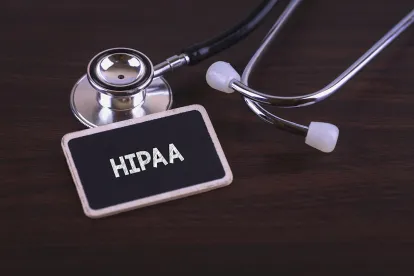This Week’s Dose
This week, a bipartisan group of Senators working on a gun violence prevention compromise announced an agreement that has the support of 10 Republican Senators—enough to overcome a filibuster. We await legislative text on the agreement, which is expected to include some health-related provisions. The Senate Health, Education, Labor and Pensions (HELP) Committee advanced its Food and Drug Administration (FDA) user fee reauthorization package, and the Senate Finance Committee unveiled the next piece of its mental health package. In the House, the Appropriations Committee began consideration of its 12 annual spending bills for FY 2023, with the goal of concluding all subcommittee and full committee approvals before the July 4th recess. The Supreme Court also issued a unanimous opinion in favor of hospitals regarding payment cuts to the 340B drug pricing program.
Congress
FDA User Fee Bill Advances in Senate. On June 14, the Senate HELP Committee held an executive session to consider S. 4348, the Food and Drug Administration Safety and Landmark Advancements (FDASLA) Act. The bill reauthorizes the FDA user fee programs, which provide the agency with funding needed to conduct a number of activities, including product reviews, facilitation of product development, facility inspections, and product monitoring.
The HELP Committee approved S. 4348 by a vote of 13-9. Notably, Ranking Member Burr (R-NC)—who authored the bill along with Chair Murray (D-WA)—voted against the bill because of amendments adopted during the markup.
There are significant differences between S. 4348 and the FDA user fee bill passed by the House on June 8 (H.R. 7667)—notably, that the Senate bill includes the Verifying Accurate Leading-edge IVCT Development (VALID) Act, which would give FDA additional authorities to regulate in vitro diagnostics, including laboratory-developed tests, new regulations on cosmetics and dietary supplements, provisions impacting FDA regulation of baby formula, and drug reimportation.
Congress is working to complete action on the FDA user fee authorizations expeditiously, as the FDA will begin to experience disruptions well in advance of the authorization’s September 30 expiration date. Differences between the House and Senate bills will need to be reconciled before a bill can be finalized and reach the President’s desk to be signed into law—something that lawmakers are hoping to accomplish before the FDA needs to start sending furlough notices in early August.
The HELP Committee also advanced four other bills during the June 14 executive session: the Maximizing Outcomes through Better Investments in Lifesaving Equipment (MOBILE) Health Care Act (S. 958); the Retirement Improvement and Savings Enhancement to Supplement Healthy Investments for the Nest Egg (RISE & SHINE) Act (S. 4353); the Cardiovascular Advances in Research and Opportunities Legacy (CAROL) Act (S. 1133); and the Early Hearing Detection and Intervention Act (S. 4052).
Senate Finance Committee Releases Mental Health Draft. On June 15, Senate Finance Committee leaders released a discussion draft focused on youth mental health. This discussion draft is the second of five subject areas under development to be released as the committee seeks to advance a comprehensive mental health reform package this year. The first discussion draft—focused on telehealth policies—was released on May 26, and additional pieces on workforce, parity, and care integration are expected in the coming weeks.
This portion addresses policies to improve youth mental health, largely in the Medicaid program. Draft provisions include:
-
Eliminating barriers to coordinated care by allowing all providers to receive Medicaid reimbursement for behavioral and physical health services delivered on the same day;
-
Supporting mental health in schools by updating Medicaid guidance to states to clarify allowable payments and identify strategies to reduce administrative burden;
-
Improving enforcement and oversight of Medicaid’s Early and Periodic Screening, Diagnostic and Treatment (EPSDT) benefit;
-
Streamlining enrollment for out-of-state providers in another state’s Medicaid program; and
-
Directing Medicaid to guide states on how to cover treatment of family care services for foster youth enrolled in Medicaid with intensive mental health needs.
A press release from the Finance Committee on the discussion draft can be found here.
Administration
|
HHS OCR Issues Guidance on HIPAA and Audio-Only Telehealth. The Department of Health and Human Services’ (HHS’) Office of Civil Rights (OCR) recently issued guidance on how the Health Insurance Portability and Accountability Act of 1996 (HIPAA) Rules permit covered healthcare providers and health plans to use remote communication technologies for audio-only telehealth. During the COVID-19 public health emergency (PHE), OCR has been exercising its enforcement discretion and not imposing penalties on covered healthcare providers for noncompliance with the requirements of the HIPAA Rules in connection with the good faith provision of telehealth using non-public facing audio or video remote communication technologies. As a result, covered healthcare providers can use any available non-public facing remote communication technologies for telehealth, even where those technologies, and the manner in which they are used, may not fully comply with the HIPAA Rules. This guidance includes four FAQs that address what will happen when the PHE expires and OCR’s enforcement flexibilities end:
Generally, the answers to each of these FAQs is “yes”, or “yes, in certain circumstances”. For more detailed answers, please refer to the full guidance, which also includes links to additional OCR resources. CourtsSupreme Court Rules in Favor of Hospitals in 340B Case. On June 15, the U.S. Supreme Court issued a unanimous opinion in American Hospital Association v. Becerra, the case brought by the American Hospital Association (AHA), Association of American Medical Colleges (AAMC), and America’s Essential Hospitals (AEH) against HHS arguing that Medicare payment cuts on 340B Drugs in 2018 and 2019 were unlawful. The Court ruled 9-0 in favor of the hospital groups, though it did not use this case to challenge the Administration’s interpretive authority and did not provide a specific remedy. The case will now go back to a lower court for further deliberations, including remedies. In a joint statement issued after the ruling, AHA, AAMC and AEH stated: “Now that the Supreme Court has ruled, we look forward to working with the Administration and the courts to develop a plan to reimburse 340B hospitals affected by these unlawful cuts while ensuring the remainder of the hospital field is not disadvantaged as they also continue to serve their communities.” See our 340B Litigation Tracker for additional details. Courts
Health Policy Breakroom PodcastOn Sunday, a bipartisan group of Senators announced a framework for federal gun violence prevention legislation. As the details of this deal continue to emerge this week, Debbie Curtis and Rodney Whitlock speak about the process of developing action into legislation and the critical role healthcare will play in this meaningful bill.
Next Week’s DiagnosisBoth the House and Senate will be in session next week, with the House scheduled to bring several health-related bills to the floor—including mental health legislation and a bill establishing the Advanced Research Projects Agency for Health (ARPA-H). We continue to await legislative text on the gun violence prevention agreement announced earlier this week. We also continue to await the imminent Supreme Court ruling on abortion rights. |






 />i
/>i

